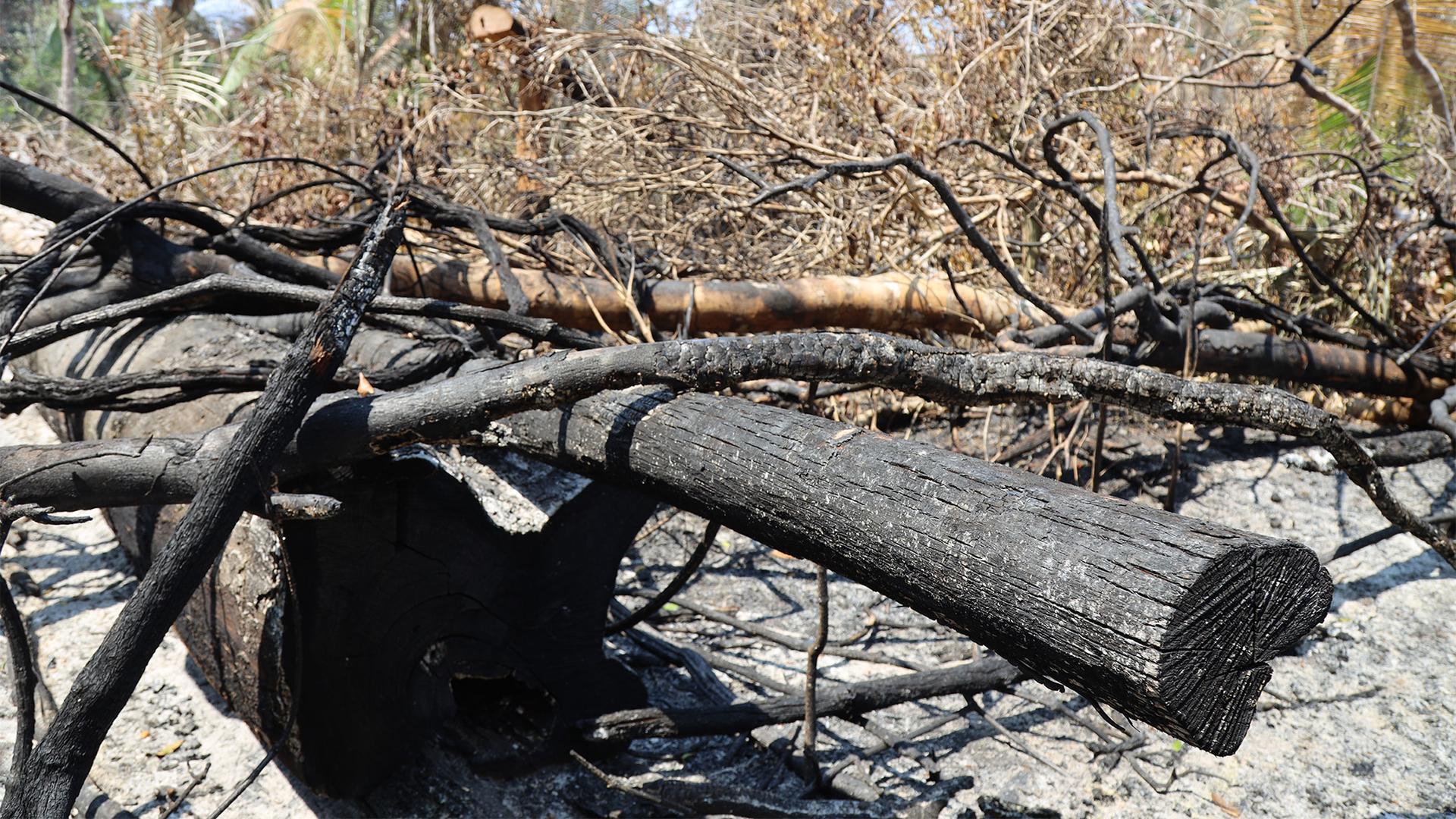Lula empowers Brazil’s Indigenous peoples with their own ministry. But environmental protection remains a key concern.
When Indigenous activists, leaders and allies gathered on Jan. 2, at Brazil’s National Indian Foundation, FUNAI, it was finally time to celebrate.
This was an agency that had previously protected Indigenous rights and native land, but which, under former President Jair Bolsonaro, had been defunded, gutted and turned against them.
“It’s so great to be back here. We haven’t had a meeting here for a long time,” the new director Joenia Wapichana told a packed crowd. “And let’s remember,” she added, “from now on, the National Indian Foundation will be named the National Foundation of Indigenous Peoples.”
Wapichana was Brazil’s first Indigenous lawyer and its first female Indigenous lawmaker. She was elected in 2018, and served in Congress over the last four years.
She said that President Luiz Inácio Lula da Silva had invited her personally to head the agency as its first Indigenous director.
“It will be a challenge,” she said. But Wapichana will have help.
FUNAI will now fall under the jurisdiction of Brazil’s first Indigenous People’s Ministry, led by prominent Indigenous activist Sonia Guajajara.
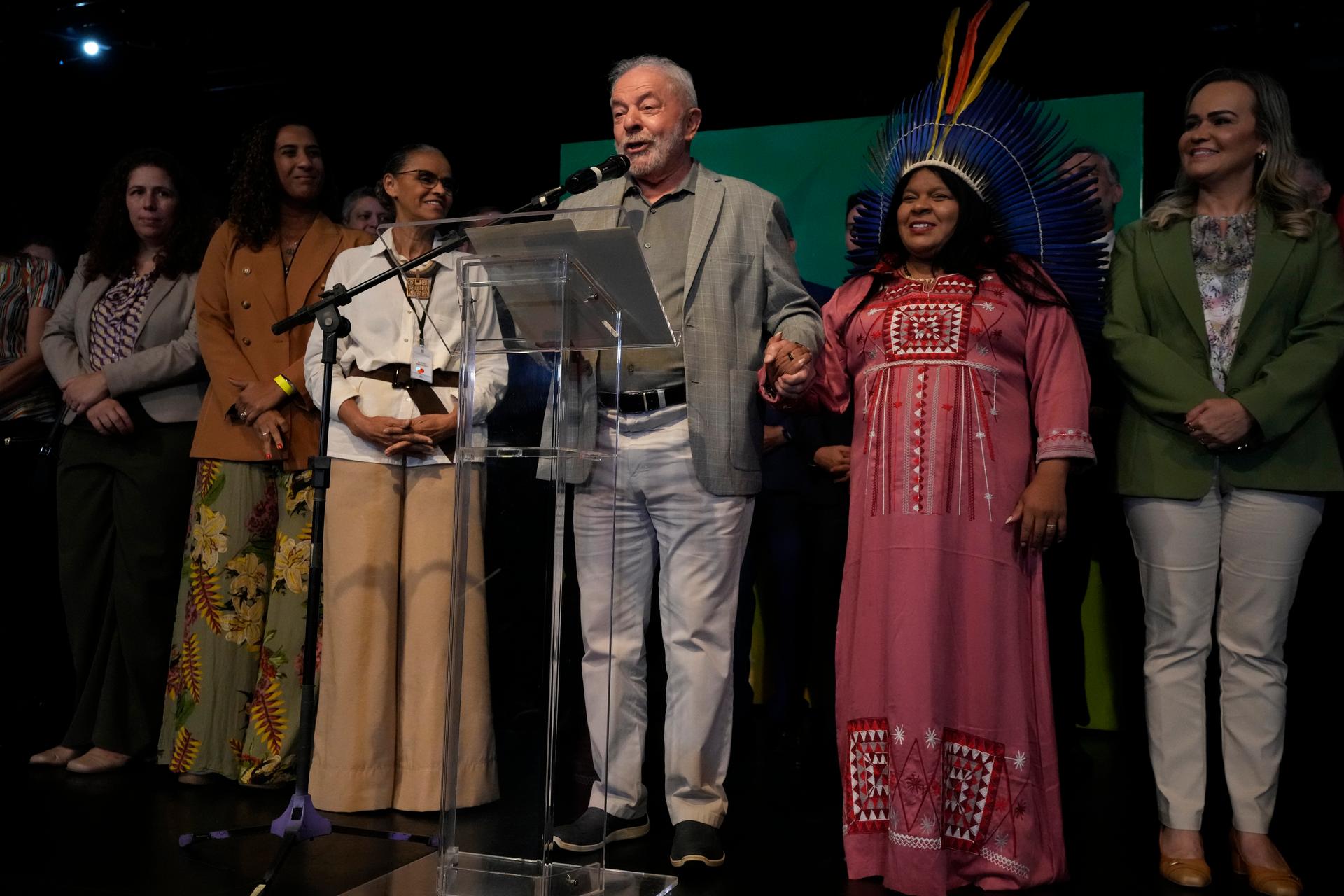
Guajajara was Lula’s first cabinet minister to be sworn in on inauguration day, and wore a feather headdress, carrying an Indigenous shaker in her right hand. Lula embraced her when she reached the podium.
“It’s a moment of such great emotion,” she said in her first speech to supporters. “I’ve been telling a lot of people that I’ve never felt this excited. Never in my life.”
Challenges facing the ministry
Indigenous territories have been devastated in recent years by fires, clear cutting, mining and logging. Amazon deforestation is at a 15-year high. More than half of the destruction in recent years has been on conservation areas and native territories.
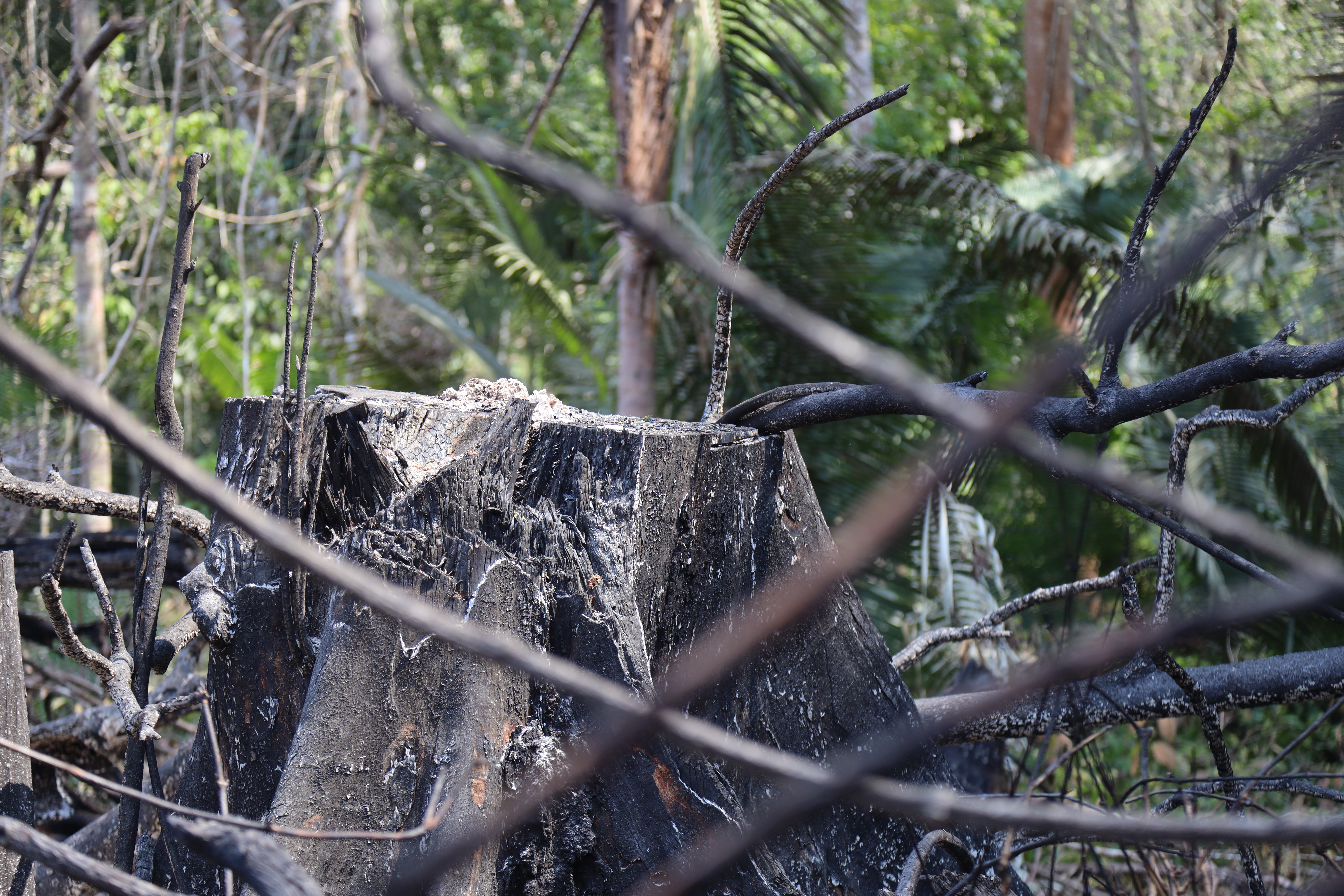
Indigenous peoples blame Bolsonaro for pushing for Amazon development and empowering illegal land grabbers.
Nowhere is this clearer than on Karipuna territory in the Amazonian state of Rondônia.
Walking through the jungle a few months ago, Chief André Karipuna pointed out the latest destruction of Indigenous land.
“This was all just burned,” he said, staring out over the charred remnants of a once-pristine stretch of jungle. “You can still see the smoke. Less than a week ago, this was all green forest.”
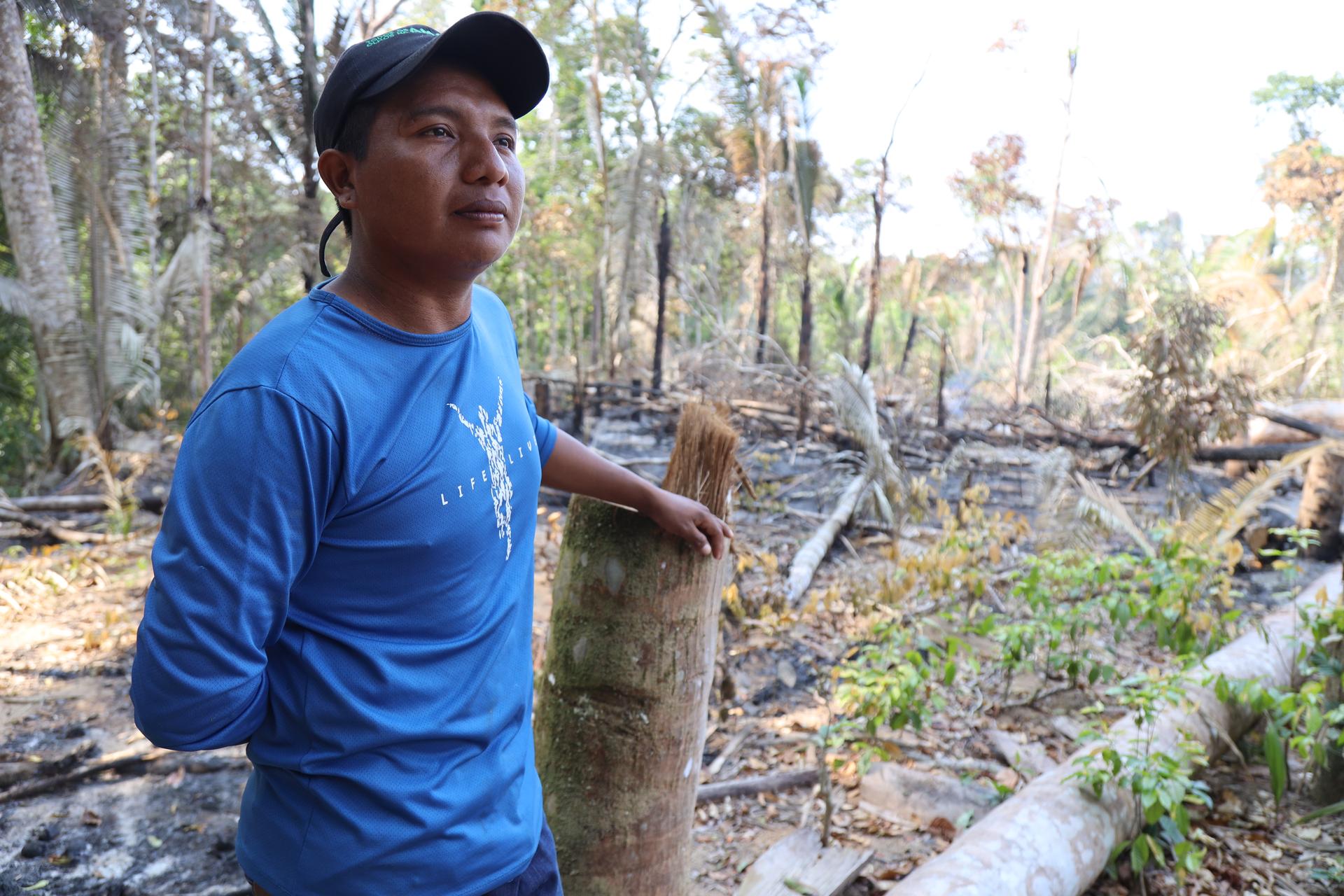
But Lula has promised to stop the land invasions and the deforestation.
“The Indigenous peoples need to have their land demarcated and free from the threats of illegal and predatory economic activities,” Lula said during his inauguration speech.
“They’re not obstacles to development. They are guardians of the rivers and forests and a fundamental piece of the greatness of our nation.”
André Karipuna said he is excited about Lula’s victory, but concerned for what lies ahead.
“The invasions are really advanced,” he said. “We are hopeful that they’ll be able to remove these invaders. But there’s a lot to be resolved.”
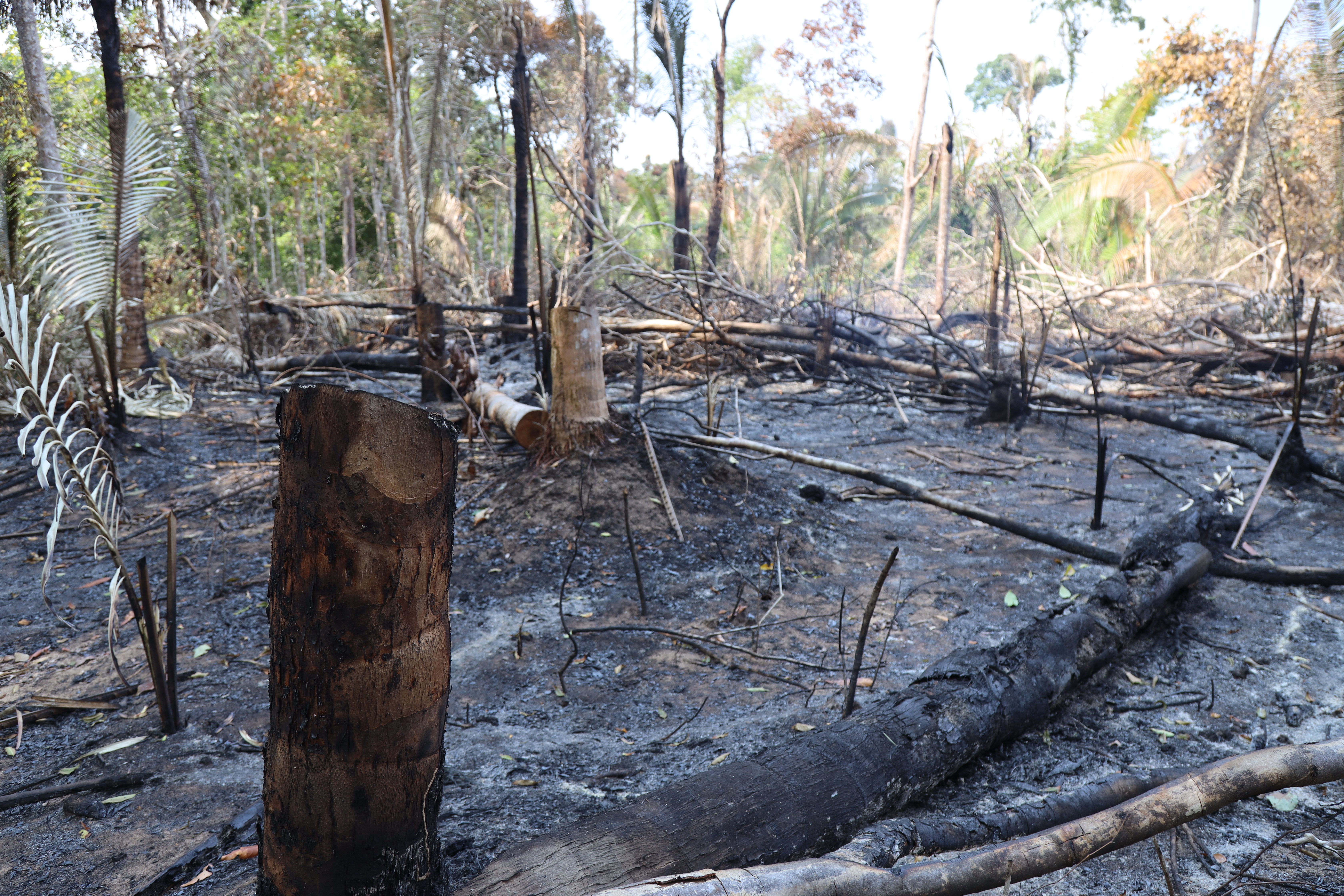
That’s why the new Indigenous leaders in Lula’s government are hoping to take action — and fast.
At the top of their agenda is restructuring the new agencies, removing land invaders and demarcating new Indigenous land, something Bolsonaro refused to do.
Meanwhile, this month, the Brazilian government is expected to recognize 13 new Indigenous territories.
“This is a moment to rewrite the history of the Indigenous peoples of Brazil.”
“This is an historic moment,” said Indigenous rights defender Ingrid Sateré Mawé. “This is a moment to rewrite the history of the Indigenous peoples of Brazil.”
They have a long way to go, but Indigenous leaders say now, like never before, is a moment of relief, of celebration and hope, for them and for the protection of the Amazon rainforest.
Related: Lula vows to end illegal mining in the Amazon. But legal mining is more complicated.
